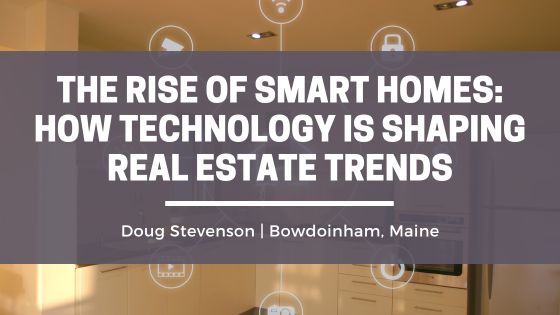Technology continues to revolutionize industries, and real estate is no exception. One of the most transformative trends is the rise of smart homes, where advanced technology seamlessly integrates with living spaces to enhance convenience, security, and energy efficiency. This shift is changing how people live and shaping real estate markets and buyer preferences.
What Are Smart Homes?
Smart homes are equipped with internet-connected devices that allow homeowners to control and monitor various aspects of their living environment, often through smartphones or voice-activated systems. From smart thermostats and lighting to security cameras and appliances, these technologies offer unparalleled convenience and customization.
The Growing Popularity of Smart Homes
The demand for smart homes is on the rise, driven by factors such as:
- Convenience: Homeowners can manage their homes remotely, whether adjusting the temperature, turning off lights, or locking doors.
- Energy Efficiency: Devices like smart thermostats and energy monitors help reduce energy consumption, lowering utility bills and environmental impact.
- Enhanced Security: Features like video doorbells, motion detectors, and automated locks provide peace of mind.
- Health and Wellness: Smart air purifiers, water quality monitors, and lighting systems tailored to circadian rhythms are becoming increasingly popular.
How Smart Homes are Reshaping Real Estate Trends
1. Changing Buyer Expectations
Today’s homebuyers, particularly millennials and Gen Z, prioritize homes equipped with smart technology. These tech-savvy generations view smart features as essentials rather than luxuries, often factoring them into their purchasing decisions.
2. Higher Property Values
Homes with integrated smart technology typically command higher market values. Buyers are willing to pay a premium for properties that offer enhanced functionality, energy savings, and modern amenities.
3. Focus on Energy Efficiency
Energy-efficient smart homes align with growing environmental awareness. Features like solar panels, energy storage systems, and efficient HVAC controls not only appeal to eco-conscious buyers but may also qualify for government incentives, making them financially attractive.
4. Growth of Smart Apartment Complexes
In urban areas, developers are incorporating smart technology into multi-family units to attract renters. Features such as keyless entry, app-controlled utilities, and smart communal spaces are becoming standard in high-end developments.
5. Impact on Home Design
The integration of smart technology is influencing architectural design. Open floor plans that facilitate wireless connectivity, built-in charging stations, and hidden compartments for smart devices are becoming common features in modern homes.
Challenges of Smart Home Integration
Despite their benefits, smart homes come with challenges:
- Cost of Upgrades: Installing smart technology can be expensive, making it less accessible for some homeowners.
- Privacy Concerns: Internet-connected devices can be vulnerable to hacking, raising concerns about data security.
- Compatibility Issues: Not all devices are compatible with each other, creating potential complications for users.
Future Outlook
As technology evolves, smart homes will continue to redefine real estate. Innovations such as artificial intelligence, 5G connectivity, and advanced IoT (Internet of Things) devices are expected to enhance the functionality and appeal of smart homes. Developers and agents who embrace these trends will likely gain a competitive edge in the market.
Conclusion
The rise of smart homes is more than a technological trend—it’s a paradigm shift in how we think about living spaces. For homeowners, smart technology offers convenience, efficiency, and security. For the real estate industry, it represents a significant driver of property value and buyer demand.
As smart home technology becomes more accessible and widespread, its influence on real estate will only grow, shaping a future where intelligent living becomes the new standard.

